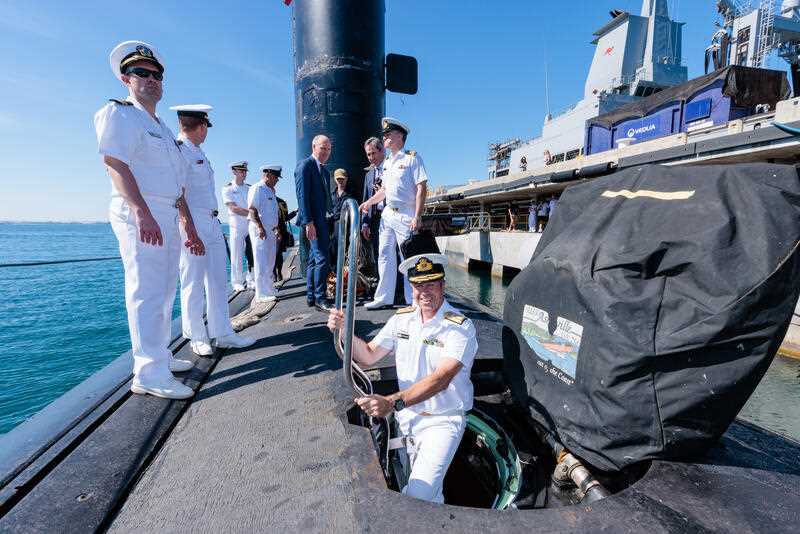Plans for the disposal of toxic waste from Australia’s new fleet of nuclear submarines will be under way within a year as environmentalists raise concerns over the impact of the landmark defence program.
Defence Minister Richard Marles says dealing with submarines’ nuclear waste when the first boats are decommissioned will be a “very significant thing”, although it won’t happen for another 30 years.
“We will need to build a facility to do this – it’s obviously going to have to be in a place which is remote from populations,” he told Seven’s Sunrise program on Wednesday.
Prime Minister Anthony Albanese announced details of the deal on Tuesday alongside his counterparts US President Joe Biden and British Prime Minister Rishi Sunak.
Under the up-to-$368 billion deal – part of the AUKUS security arrangement – Australia will command a fleet of eight nuclear-powered submarines within the next three decades.
But the Australian Conservation Foundation said the government had been silent about how the nuclear material powering the submarines would eventually be disposed of.
The foundation’s nuclear analyst Dave Sweeney said Australia did not have the experience and expertise required to manage high-level radioactive waste.
“AUKUS presents by far the biggest threat yet that Australia will become a dumping ground for the world’s worst nuclear waste,” he said.
Mr Marles said the submarine waste would be disposed of on defence land and Australia had time to make sure the process was done right.
“Within the year, we will announce a process by which that facility will be identified and what it will look like,” he said.
The submarine project is expected to create at least 20,000 jobs over the next 30 years.
NSW Premier Dominic Perrottet said he believed Port Kembla, south of Sydney, should be used as an east coast base for the submarines.
But the local chamber of commerce and labour council said Port Kembla deserved better than what the premier had offered.
“We’ve been working so hard through the years to diversify our port to give real job opportunities to our people and we’re almost there, on the cusp of $40 billion of investment in renewables,” South Coast Labour Council secretary Arthur Rorris said.
“Out of nowhere comes this idea that they plonk a nuclear parking lot – not a ship-building base – but a parking lot here and stick a massive nuclear target on our backs.”
Port Kembla Chamber of Commerce president Greg Rodgers said the community wanted the renewable energy jobs it had been promised.
“We’re looking for renewable jobs, neutral energy industries, green industries,” he said.
By Maeve Bannister and Peter Bodkin in Canberra



